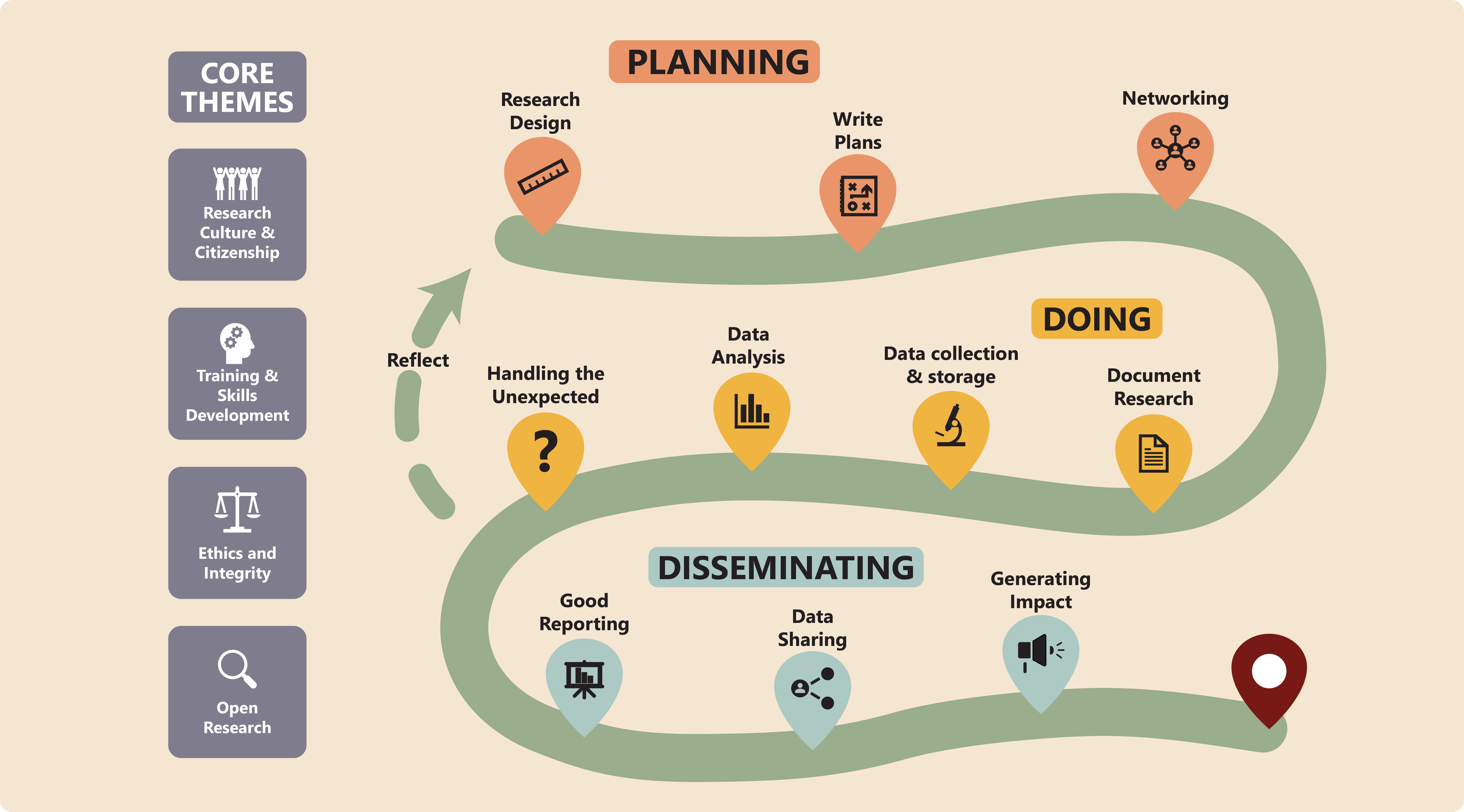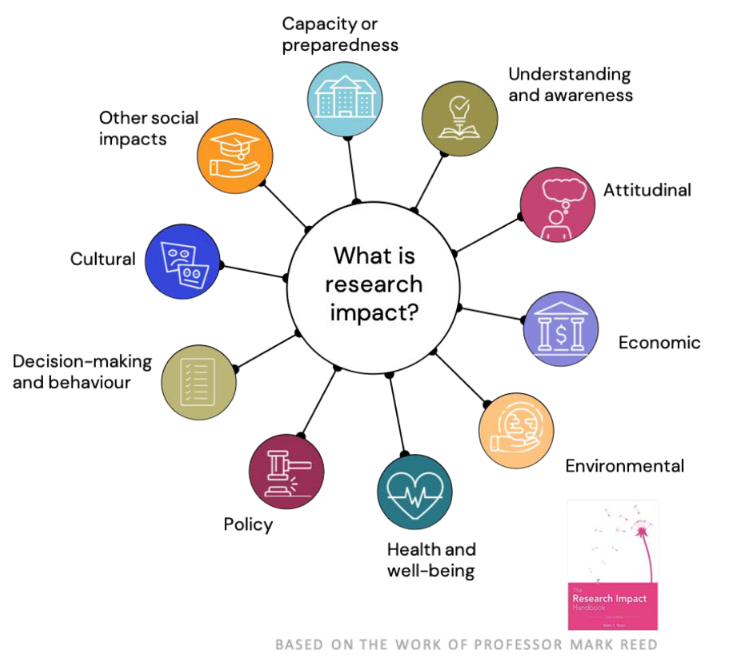Generating Impact

Research impact is the way research makes a difference in society. It can influence policies and lead to improvements in health, quality of life, or environmental protection.

-
Aim to present your work and any key findings regularly (e.g., at external conferences or departmental meetings). In addition, consider disseminating your findings at both specialist events or conferences as well as broader audiences, such as non-specialist or industry-linked events. If there is anything potentially sensitive, or commercialisable, in the material, discuss with the appropriate teams beforehand.
-
Understand the benefits of interdisciplinary research, which brings together experts from different fields, allowing them to tackle bigger or more complex problems using a variety of methods.
-
Setting up collaborations with industrial partners may help translate your findings into usable and directly beneficial applications. Some research findings may be able to proceed with commercialisation. Be sure to check how this impacts your ability to disseminate your results, bearing in mind concerns like intellectual property. (this may preclude further dissemination in order to enable intellectual property to be preserved).
-
Consider engaging with policymakers, who can use your findings to action change.
-
Bear in mind that the goal of your research is to benefit the wider public. As such, researchers should strive to communicate with and share their research outputs with the public wherever possible and/or appropriate. This engagement could include writing articles aimed at lay audiences, attending and demonstrating at University open days or local school events, science festivals or more informal local events. You could also reach the public by e.g. sharing your research on social media.
-
It is also important to share your research with specific groups affected by the outcomes of your research (e.g., patient groups).
-
Many funders require evidence of research impact, so ensure you document your impact.
-
Finally, use your knowledge and skills to mentor and train other researchers and students, to ensure the development of future researchers.
Can you think of ways to maximise the impact of your research?